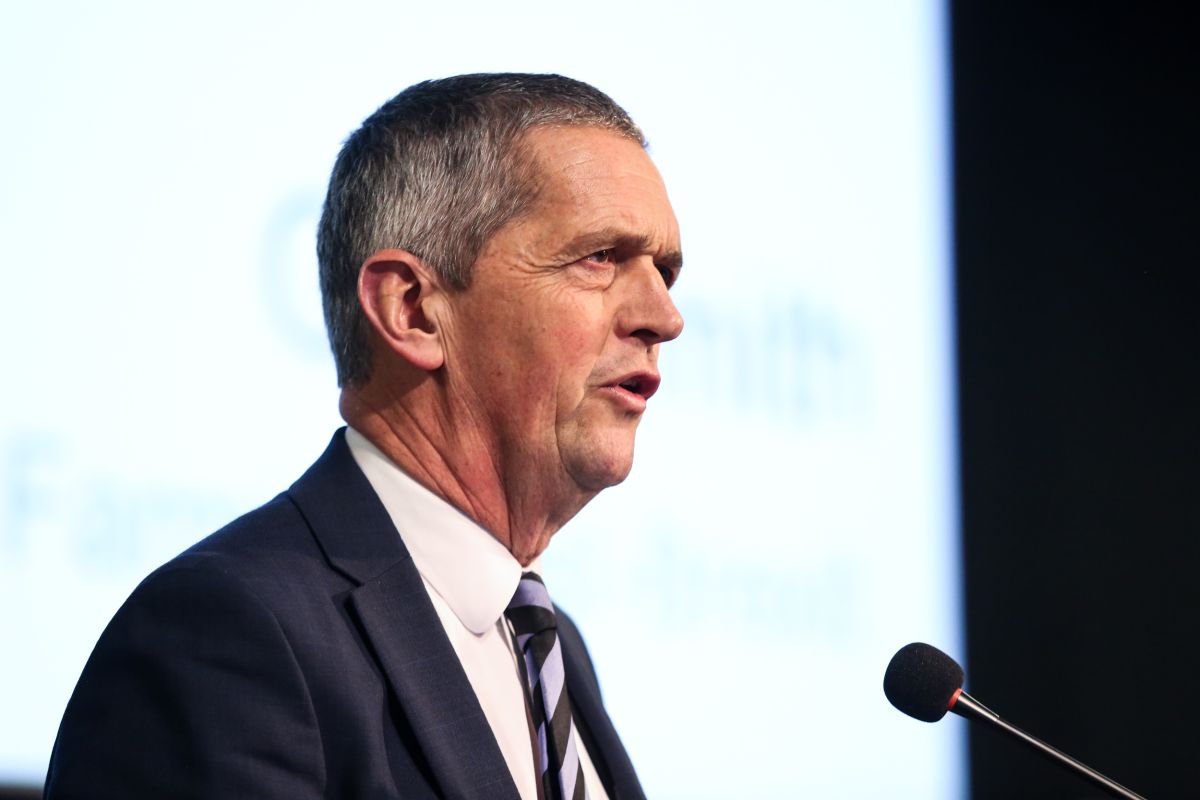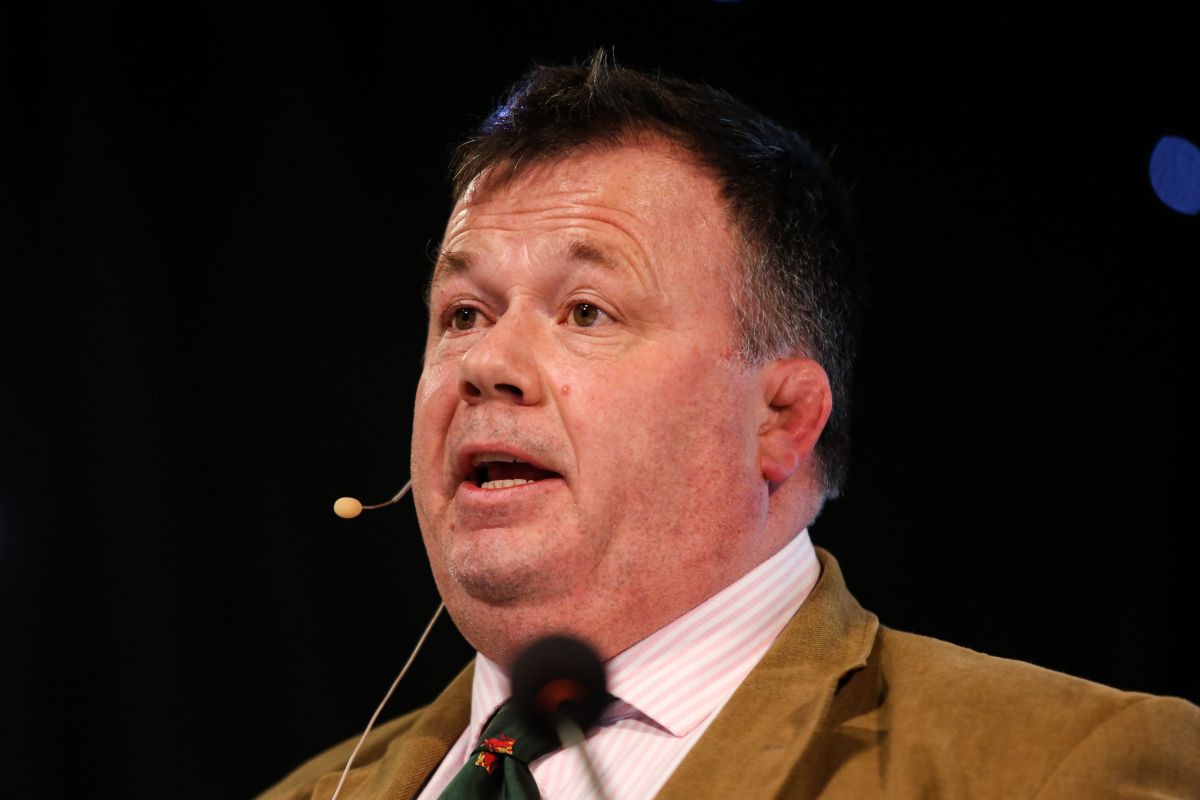Lincs Farming Conference: 'UK risks losing its biggest manufacturing industry unless it protects farming'

The United Kingdom will risk losing its biggest manufacturing industry unless it protects British agriculture.
That is the message from NFU vice president Guy Smith at the told the Lincolnshire Farming Conference yesterday (28 February).
The food and drink industry is the country's biggest manufacturer and its largest manufacturing export sector, accounting for 16 per cent of UK manufacturing turnover and employing 400,000 people.
But Guy Smith said if the British Government allowed cheap, lower standard food imports, then the country could lose its farming industry and the food manufacturing industry, too.
"I think we must think that there's a chance that we can build a better, stronger British agriculture over the next two years if we can persuade our Government to make the right decisions on trade, the right decisions on access to labour, the right decisions on regulation and the right decisions on what policy should look like," he told FarmingUK during the Lincolnshire Farming Conference.
"I think, if we can make our voice heard in what will be a really busy two years, then I think we can come out the other side of this a stronger industry. That is the challenge and that, as far as the NFU is concerned, is what we are up for."

'Be careful about trade deals'
But he warned that politicians needed to be careful about the terms of any trade deals they negotiated with other countries following the UK's withdrawal from the EU.
He said: "The key point to make to Government is that if, as a result of leaving the European Union, we end up just sucking in more imports from other parts of the world of lower standards then that is a fail and that will export our agriculture to other parts of the world.
"The key point is that that may take the manufacturing base with it because, if you are a processor processing agricultural products, you will probably want to go to those parts of the world where you are sure there is local supply," he said.
"And that will really impact hard on our economy because food and drink is the largest sector of the UK economy."
'Planning for the future'

The annual Lincolnshire Farming Conference took as its theme for this year, 'Planning for the Future,' and Mr Smith explained his thoughts about the future of farming beyond 2019, when the UK is expected to complete its departure from the EU.
He said that the EU referendum campaign had seen British farmers split between those who wanted to retain EU membership and those who wanted to leave.
"For the NFU that was difficult to represent - a split in membership. But the point is, now is it's done, there's no point going back to all those old arguments. We really need to move on. And it's really important, as an industry, that we see this as an opportunity rather than a threat. We are not naive about the enormity of the challenge but we are not overwhelmed by it either."
He said: "If we don't have access to the labour pools we need, if we get heaps of regulation and no support, if we get bad trade deals and if we get badly designed support, then that will be a hostile environment for any agriculture to survive."
Moving away from subsidies
Another speaker at this year's conference was Doug Wanstall, vice chairman of the British Free Range Egg Producers' Association (BFREPA), who has 445 hectares of arable land in Kent, as well as 170,000 free range layers.
The egg industry is one sector that notably operates successfully without subsidies, and he told those attending the conference that he would like to see the farming industry generally moving away from direct support.
"I, personally, would shift all current subsidy payments from Pillar 1 to Pillar 2 and then gradually phase to nothing," he said.
"We need a policy that helps to continue to enhance countryside environmental protection and allows us to remain competitive in the global market place."
Mr Wanstall said any environmental support should be administered "very differently to get better outcomes" and made more efficient.
"The remainder of the cash would go to building efficiency and cutting costs. This in the long term would make our industry more vibrant and more profitable."
He said: "What the UK needs is a good set of British agricultural policies. We need our Government on our side
New Zealand as a good example
Mr Wanstall pointed to New Zealand as a good example of how farming could be run well without subsidies.
"New Zealand's unsubsidised, low cost and highly efficient agriculture is the envy of the world. Despite a tiny market it has a huge agri sector."
The country had low disease and pest levels, lower levels of red tape and lower levels of compliance he said.
He said the country had great proximity to large markets and, most of all, the country's farming industry had a Government on its side.
Fonterra, a dairy company owned by 13,000 New Zealand dairy farmers, had developed a global market for milk products, he said.
If the UK was to aspire to a free market, free trade world - something the UK Government suggested it wanted - then it needed to let the shackles off the industry and allow the development of ideas like Fonterra.
But he said it was the responsibility of farmers, themselves, to be as efficient as they could be in a free market post-Brexit.
"It matters not what sector you are in - the quest to become a better, more efficient producer, producing at lower cost, should never stop," he said.
Positive about the future
Guy Smith said that farmers should be positive about future opportunities after the UK leaves the EU, and he said they would be.
He said: "Farmers relish opportunity. But they are wary as well because they think that, if we get bad decisions over the next couple of years, then life won't be very good.
"One key thing we are asking for at the moment is that we have transition here, that we don't have big bang, sudden complete change of policy, end of support payments overnight, in 2019."
The NFU vice president said farmers would need time to adjust. They would need transition rather than rapid change - that would be a sensible policy, he said.








